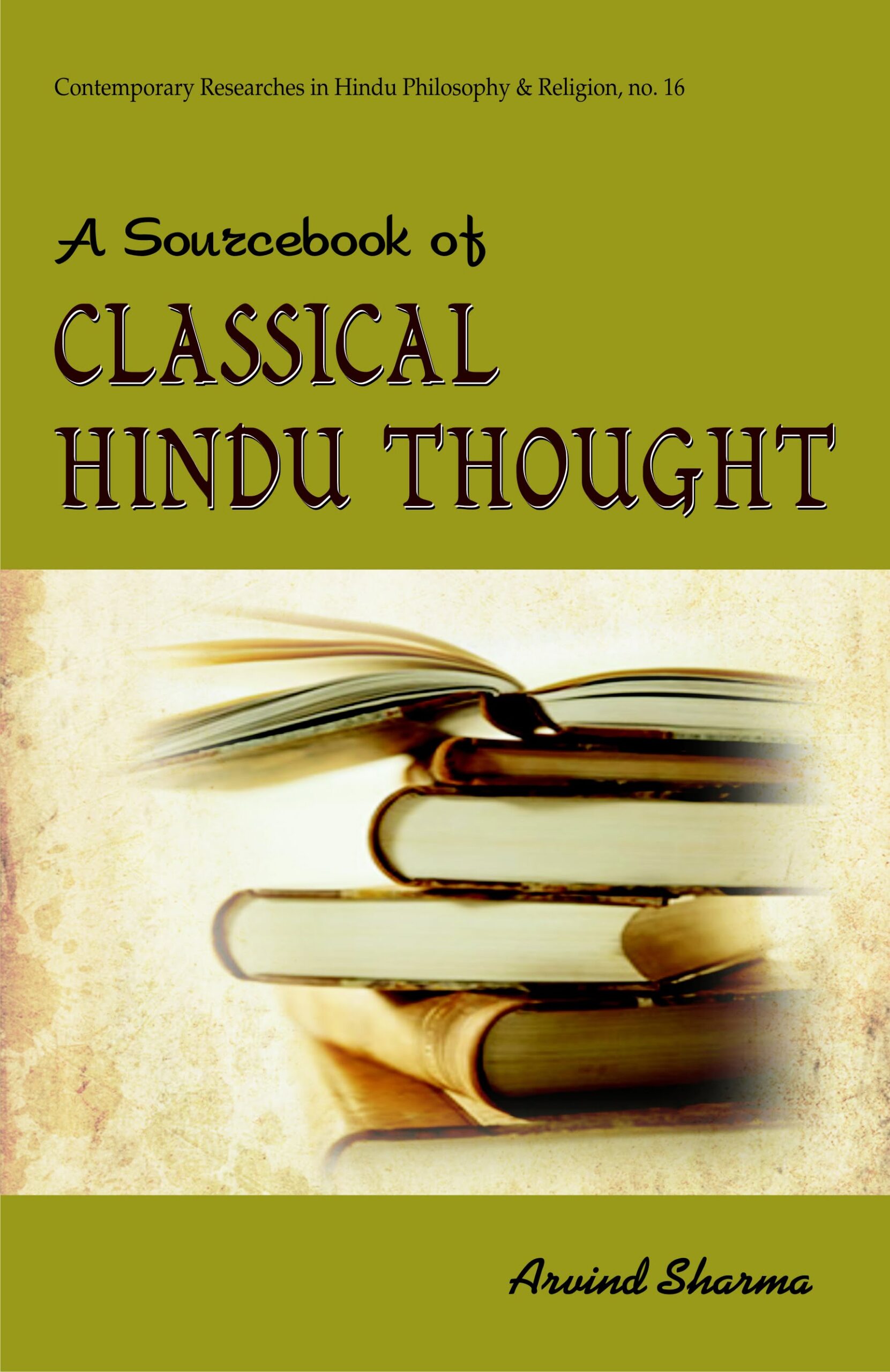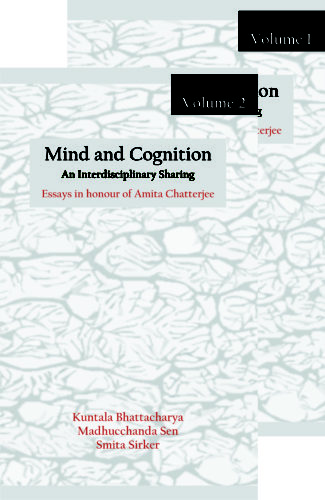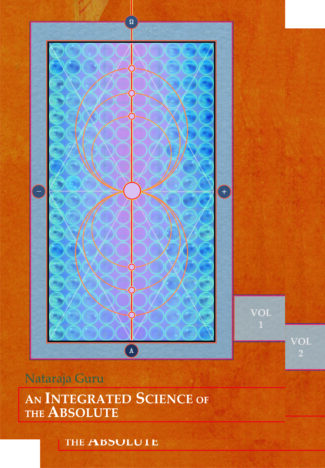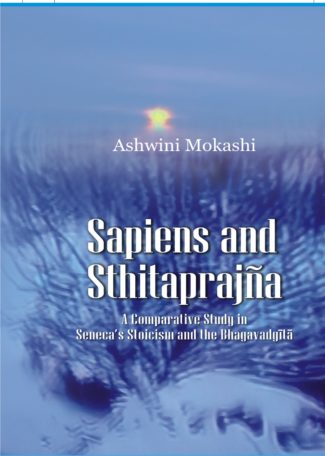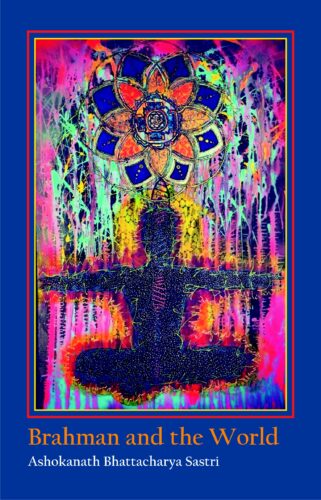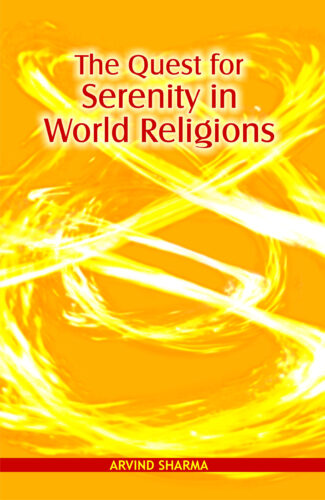

Quest for Serenity i...
Quest for Serenity in World Religions
by: Arvind SharmaThis book describes the search for serenity as found in what are conventionally referred to as the world religions and identifies a similarity in the pattern which seems to underlie these approaches, thereby extending the application of the comparative method to religious psychology.
₹100.00 Original price was: ₹100.00.₹90.00Current price is: ₹90.00.
ISBN: 9788124604205
Year Of Publication: 2007
Edition: 1st
Pages : viii, 80
Bibliographic Details : Bibliography; Index
Language : English
Binding : Paperback
Publisher: D.K. Printworld Pvt. Ltd.
Size: 22
Weight: 150
Every religion, even ideology, needs to provide its followers with ways of coping with the vicissitudes of life, especially when personal tragedy tears a gaping hole in the fabric of meaning. This book describes the search for serenity as found in what are conventionally referred to as the world religions and identifies a similarity in the pattern which seems to underlie these approaches, thereby extending the application of the comparative method to religious psychology.
1. The Quest for Serenity in Hinduism
2. The Quest for Serenity in Buddhism
3. The Quest for Serenity in Confucianism
4. The Quest for Serenity in Taoism
5. The Quest for Serenity in Judaism
6. The Quest for Serenity in Christianity
7. The Quest for Serenity in Islam
8. Conclusion
Bibliography
Index
- Sale!An Introduction to Vedanta by: R. Subramony
₹550.00Original price was: ₹550.00.₹495.00Current price is: ₹495.00.Vedanta holds an unparalleled and unique place among the six systems of Indian philosophy. Though the Vedas are the fountainhead of Indian philosophical systems, Vedanta incorporates the philosophical thoughts resplendent in the Upanishads, the Brahmasutras, the Bhagavatgita, and in the commentaries on all these texts.
An Introduction to Vedanta introduces the Vedanta philosophy in brief and talks about its cardinal issues like self-control and the meaning of worship, maya and its gunas, upadhi, the theory of cycle, subtle bodies, the role of meditation, samadhi and its four major obstacles, Brahman realization and the state of a jivanmukta and his relation with Brahman and the world. - Sale!Mind and Cognition An Interdisciplinary Sharing by: Kuntala Bhattacharya, Smita Sirker, Madhucchanda Sen,
₹4,000.00Original price was: ₹4,000.00.₹3,600.00Current price is: ₹3,600.00.“Knowing one’s tradition is important; but only when tradition is not presented as fossilised but as continuous with our present-day living. In most places we do not make enough effort to show the link between the classical philosophical thoughts and the contemporary world view. We need to show that we can still meaningfully interact with the classical philosophical systems”, writes Amita Chatterjee in her seminal essay “In Search of Counterpoints”. This volume is dedicated in her honour. “Knowing one’s tradition is important; but only when tradition is not presented as fossilised but as continuous with our present-day living. In most places we do not make enough effort to show the link between the classical philosophical thoughts and the contemporary world view. We need to show that we can still meaningfully interact with the classical philosophical systems”, writes Amita Chatterjee in her seminal essay “In Search of Counterpoints”. This volume is dedicated in her honour. Chatterjee belongs to a genre of philosophers, who have as part of their cultural heritage, like Raghunath Siromani and Immanuel Kant. Chatterjee, in addition to breaking cultural boundaries, desired to break boundaries that have kept professional disciplines apart. She deeply believes that there are certain basic questions that are questions not for any specific discipline. These questions, she thinks, could not be answered by remaining within one single discipline. It is no surprise that she was the founder of the first Cognitive Science Centre in India. Responding to her multifaceted academic talent, forty academics from diverse disciplines and from all over the world have contributed papers to this volume. The major areas of Chatterjee’s interest that feature in this volume are: (i) Fusion Philosophy, (ii) Mind and Cognition, (iii) Mind and Perception, (iv) Mind and Language, (v) Logic and Vagueness, (vi) Logic, (vii) Indian Philosophy, and (viii) Philosophy, Society and Popular Culture. Chatterjee’s intellectual autobiography and her responses to each of the papers are parts of this volume.
ISBN 9788124609514 (vol. 1)
ISBN 9788124609521 (vol. 2)
- Sale!An Intergrated Science of the Absolute (2 Vols. Set) by: Nataraja Guru
₹3,000.00Original price was: ₹3,000.00.₹2,700.00Current price is: ₹2,700.00.It is not just the magnum opus, but a truly monumental effort of a scientist-philosopher who has spent a whole lifetime to formulate a unitive science, wherein all disciplines of human questing could find a common ground a science where modern science and ancient spiritual wisdom could meet and merge like two opposite poles of a magnet. As a direct disciple of one of the great rishis of the modern age, Nataraja Guru discovers this common ground in Brahma-vidya, which he calls the Integrated Science of the Absolute, and which has, at its base, his Gurus Dars?ana Mala.
A string of hundred Sanskrit verses, composed by the mystic-poet, Narayana Guru (18541928), the Darsana Mala is the very epitome of all visions of truth inspired by his remarkable acquisitions of Upanisadic thought and, yet far more, by his own tapas (mystical discipline). Reproducing these highly significative verses in Roman script, along with English translations, word meanings, and extensive commentaries, Nataraja Guru not only spells out his mentors Visions of the Absolute in contemporary idiom, but also shows how these visions are fully validated by modern science.
Eclectic synthesis of varied scientific disciplines into a systematic whole is not all that Nataraja Guru accomplishes here. Rather, his book (now in third edition) is an attempt to reintroduce Brahma-vidya as the one Master Science that embraces every branch of science, every human interest. - Sale!Sapiens and Sthitaprajna by: Ashwini A. Mokashi
₹800.00Original price was: ₹800.00.₹720.00Current price is: ₹720.00.Sapiens and Sthitaprajna studies the concept of a wise person in the Stoic Seneca and in the Bhagavadgita. Although the Gita and Seneca’s writings were composed at least two centuries apart and a continent apart, they have much in common in recommending a well-lived life. This book describes how in both a wise person is endowed with both virtue and wisdom, is moral, makes right judgements and takes responsibility for actions. A wise and virtuous person always enjoys happiness, as happiness consists in knowing that one has done the right thing at the right time.
Both Seneca and the Gita demand intellectual rigour and wisdom for leading a virtuous and effective life. They provide guidelines for how to become and be wise. Both systems demand a sage to be emotionally sound and devoid of passions. This leads to mental peace and balance, and ultimately tranquillity and happiness. While surveying these similarities, this study also finds differences in their ways of application of these ideas. The metaphysics of the Gita obliges the sage to practise meditation, while the Stoics require a sage to be a rational person committed to analysing and intellectualizing any situation.
This comparative study will be of interest to students of both Ancient Western and Ancient Indian Philosophy. Practitioners of Stoicism and followers of the Gita should find the presence of closely-related ideas in a very different tradition of interest while perhaps finding somewhat different prescriptions a spur to action. - Sale!Brahman and the World by: Ashokanath Battacharya Sastri
₹500.00Original price was: ₹500.00.₹450.00Current price is: ₹450.00.“The Vedānta has been rightly called the Finest Fruit of Indian Thought and the Upaniṣads as the Finer Flowers. Vedānta grows out of the teachings of the Upaniṣads and passes into the various systems in the writings of Śaṅkara, Bhāskara, Rāmānuja, Madhva and Vallabha, the great founders of Advaita, Bhedābheda, Viśiṣṭādvaita, Dvaitādvaita and Śuddhādvaita, respectively. However, there is a perception among Orientalists that while the Upaniṣads favour the Monistic doctrine, Bādarāyaṇa’s Brahmasūtra fundamentally opposes it on some of the most crucial points.
The book thus delves deep into the philosophies of both Bādarāyaṇa and Śaṅkara in enunciating the essential features of Brahman and Its association with the world. It thus discusses topics such as what sort of cause Brahman is?, and what sort of material causality is to be ascribed to It? It also addresses the conflicting views on the nature of Brahman like that of Vivarttavāda and of Rāmānuja’s Saguṇa-Brahman.
This book proposes to take up the question of Universal Causation to examine thoroughly as how far it is right to regard Brahman as the Universal Cause and how far sūtrakāra himself lent his support to each of the inter-conflicting schools of Vedānta. This book should, therefore, benefit all who are devoted to the philosophic teachings of Advaita Vedānta and its preceptors.”





